Me
Mead, George Herbert (1863-1931)
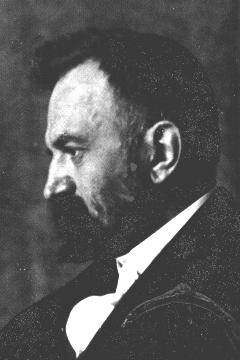 American pragmatist social psychologist, founder of Symbolic Interactionism.
American pragmatist social psychologist, founder of Symbolic Interactionism.
Mead studied at Oberlin College and Harvard University; 1891-94 taught philosophy and psychology at the University of Michigan; 1894 -1931 at the University of Chicago.
Mead’s main contribution to social psychology was his attempt to show how self-consciousness arises through interaction with others. He thought that spoken language played a central role in this development. Through language, the child can take the role of other persons and guide his behaviour in terms of the effect his contemplated behaviour will have upon others. Mead indicated this idea in the relation between the “I” which is the subject of action and the “me” which is constituted by the reaction of others.
Mead was influenced by Einstein’s theory of relativity and the idea of “emergence”, holding that a thing’s properties emerged as objective properties, but only under specific conditions.
Mead’s works were published only after his death, when his students edited four volumes from stenographic recordings and notes on his lectures and from unpublished papers: The Philosophy of the Present (1932); Mind, Self, and Society (1934); Movements of Thought in the Nineteenth Century (1936); and The Philosophy of the Act (1938).
See Science and the Objectivity of Perspectives, Criticism of Hegelianism, Frgaments on Ethics and The Social Self.
Mediev, V. L
Social Revolutionary. Deputy Minister to Kerensky for Military and Naval Affairs in July Coalition.
Mehring, Franz (1846-1919)
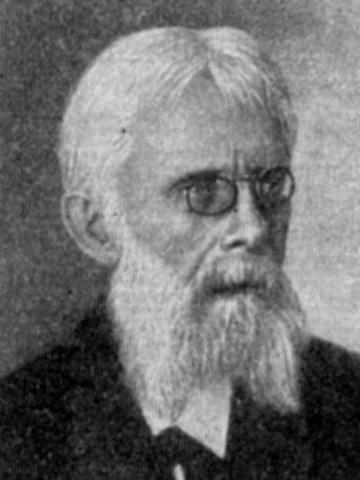 German Social Democrat, literary critic, writer and historian. Originally a liberal journalist, he joined the German Social Democratic Party (SPD) in the early 1890s. He rapidly became acknowledged as an important theoretician. In the course of time he moved to the left and became associated with the current around Rosa Luxemburg. With the outbreak of World War I he was, despite his advanced years, a prominent member of the of the Spartacist League and of revolutionary opposition to the war along with Rosa Luxemburg, Karl Liebknecht and Clara Zetkin. He was a founder member of the German Communist Party established on New Years Day 1919, but died later in the month shortly after the murder of his comrades Luxemburg and Liebknecht.
German Social Democrat, literary critic, writer and historian. Originally a liberal journalist, he joined the German Social Democratic Party (SPD) in the early 1890s. He rapidly became acknowledged as an important theoretician. In the course of time he moved to the left and became associated with the current around Rosa Luxemburg. With the outbreak of World War I he was, despite his advanced years, a prominent member of the of the Spartacist League and of revolutionary opposition to the war along with Rosa Luxemburg, Karl Liebknecht and Clara Zetkin. He was a founder member of the German Communist Party established on New Years Day 1919, but died later in the month shortly after the murder of his comrades Luxemburg and Liebknecht.
See the Franz Mehring Archive and his obituary in The Class Struggle.
Mendis, J. Allan
Born in Ceylon. Joined Lanka Sama Samaja Party. Worked at Whittall & Co. in Colombo; active in Mercantile Employees Union. Member, Bolshevik Leninist Party of India, Madras, 1944-45. Arrested in Madras, sentenced to two years Rigorous Imprisonment, and deported to Ceylon, 1945. Active in LSSP until his death.
Compiled by Charles Wesley Ervin
Mendis, Reginald (1922-2000)
Born in Moratuwa, into a poor family. Went to work as a small-time trader in Pettah, the commercial area of Colombo. Joined the Lanka Sama Samaja Party during World War Two; participated in the clandestine party conference in 1944. Afterwar, worked for Colombo Stevedore Workers’ Union and later the United Port Workers’ Union. Member, LSSP Central Committee. Opposed proposal to form coalition government with SLFP, 1960-64. Split from LSSP, 1964; founding member LSSP(R), 1964. Rejoined LSSP, 1967. Secretary, LSSP Education and Propaganda Committee. Expelled from LSSP, 1976, for oppositing the coalitionist line of the party. Founding member, Lanka Sama Samaja Party (New Leadership), 1977. Supported LSSP again in 1982. Later retired from politics; remained an independent socialist until his death.
Compiled by Charles Wesley Ervin
Menzhinsky, Vyacheslav (1874-1934)
Succeeded Felix Dzerzhinsky as head of the Soviet secret police in 1926.
Merleau-Ponty, Maurice (1908-1961)
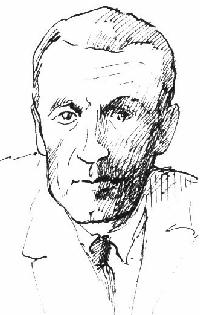 Philosopher and literary critic and leading exponent of Phenomenology in France.
Philosopher and literary critic and leading exponent of Phenomenology in France.
Merleau-Ponty studied at the École Normale Supérieure in Paris and took his agrégation in philosophy in 1931. He taught in a number of lycées before World War II, during which he served as an army officer. In 1945 he was appointed professor of philosophy at the University of Lyon and in 1949 was called to the Sorbonne in Paris. In 1952 he received a chair of philosophy at the Collège de France. From 1945 to 1952 he served as unofficial co-editor (with Jean-Paul Sartre) of the journal Les Temps Modernes.
Merleau-Ponty's most important works of philosophy were The Structure of Behaviour (1942) and Phenomenology of Perception (1945). Though greatly influenced by the work of Edmund Husserl, Merleau-Ponty rejected his theory of the knowledge of other persons, grounding his own theory in bodily behaviour and in perception. He held that it is necessary to consider the organism as a whole to discover what will follow from a given set of stimuli. For him, perception was the source of knowledge and had to be studied before the conventional sciences.
Turning his attention to social and political questions, in 1947 Merleau-Ponty published a group of Marxist essays, Humanism and Terror, the most sophisticated defence of Soviet communism in the late 1940s. He argued for suspended judgment of Soviet terrorism and attacked what he regarded as Western hypocrisy. The Korean War disillusioned Merleau-Ponty and he broke with Sartre, who defended the North Koreans.
In 1955 Merleau-Ponty published more Marxist essays, The Adventures of the Dialectic. This collection, however, indicated a change of position: Marxism no longer appears as the final word on history, but rather as a heuristic methodology. Later he returned to more strictly philosophical concerns.
Messali Hadj, Ahmed (1898-1974)
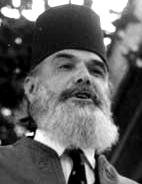 Algerian communist and founder of the modern Algerian nationalist movement.
Algerian communist and founder of the modern Algerian nationalist movement.
A supporter of the Russian Revolution, in 1927, Messali was elected leader of an Algerian workers’ association based in Paris. From this time forward he was the leading light of Algerian independence and socialism. He was active both in France and in Algeria building an underground movement to expel French colonialism from his land.
Messali’s first group, the Étoile Nord-Africaine, which summoned Algerians to rise against French colonialism, was dissolved by the French in 1929. In the mid-1930s he founded the Parti Populaire Algérien (PPA; Algerian Popular Party), but the French suppressed this party also.
During the second world war, Ferhat Abbas, a well-known Algerian social-democrat, became a Communist and joined with Hadj to build a militant workers party — Friends of the Manifesto and Liberty. In 1946, they launched the Mouvement pour le Triomphe des Libertés Démocratiques.
As a result of the failure of the Comintern to support the demand for Algerian independence from France, Messali Hadj’s influence declined. In 1954 he formed the Mouvement National Algérian (Algerian National Movement), but the nationalist Front de Liberation Nationale, eclipsed Hadj’s group and became the ultimate leaders of the Algerian independence struggle. Subsequently, Messali Hadj became politically isolated and lived out his life in Paris.
See Messali Hadj Archive.
Metternich, Lothar von (1773-1859)
Austrian minister of foreign affairs, 1809-48, organized the Holy Alliance of Austria-Hungary, Russia, and Prussia in 1815, with the aim of maintaining control of Europe following the French Revolution and the Napoleonic wars.
Meyer, Ernst (1887-1930)
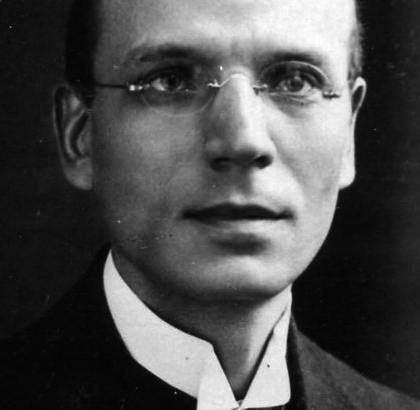 Joined SPD 1908 and worked for Vorwärts, the party newspaper. Opposed war and expelled from editorial board in 1915. Joined Spartakusbund, which he represented at the Zimmerwald and Kienthal Conferences. Founder member of KPD. Attended 2nd and 4th Congresses of Comintern and served on ECCI after the 2nd Congress. Removed from KPD leadership in 1928 for opposing "Third Period" policies of Ernst Thälmann.
Joined SPD 1908 and worked for Vorwärts, the party newspaper. Opposed war and expelled from editorial board in 1915. Joined Spartakusbund, which he represented at the Zimmerwald and Kienthal Conferences. Founder member of KPD. Attended 2nd and 4th Congresses of Comintern and served on ECCI after the 2nd Congress. Removed from KPD leadership in 1928 for opposing "Third Period" policies of Ernst Thälmann.
See Ernst Meyer Archive.